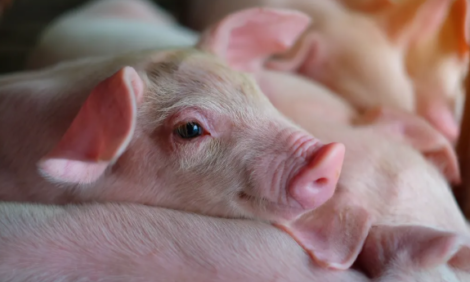



Reliability of Pig Herd Data Collected during Telephone Interviews to Evaluate PCV2 Piglet Vaccination
Telephone surveys using standardised questions may be an efficient way to investigate safety and efficacy aspects of vaccines, according to a new study from the University of Hanover and Boehringer Ingelheim.In BMC Veterinary Research, Elisabeth grosse Beilage of the University of Veterinary Medicine Hannover Foundation in Germany and coauthors there and at the University of Berne in Switzerland and Boehringer Ingelheim have published a paper describing a study that aimed to evaluate the feasibility of using a telephone survey in gaining an understanding of the possible herd and management factors influencing the performance (i.e. safety and efficacy) of a vaccine against porcine circovirus type 2 (PCV2) in a large number of herds and to estimate customers’ satisfaction.
Datasets from 227 pig herds that currently applied or have applied a PCV2 vaccine were analysed. Since one-, two- and three-site production systems were surveyed, the herds were allocated in one of two subsets, where only applicable variables out of 180 were analysed.
Group 1 was comprised of herds with sows, suckling pigs and nursery pigs, whereas herds in Group 2 in all cases kept fattening pigs.
Overall, 14 variables evaluating the subjective satisfaction with one particular PCV2 vaccine were comingled to an abstract dependent variable for further models, which was characterized by a binary outcome from a cluster analysis: good/excellent satisfaction (green cluster) and moderate satisfaction (red cluster).
The other 166 variables comprised information about diagnostics, vaccination, housing, management, were considered as independent variables.
In Group 1, herds using the vaccine due to recognised PCV2 related health problems (wasting, mortality or porcine dermatitis and nephropathy syndrome) had a 2.4-fold increased chance (1/OR) of belonging to the green cluster.
In the final model for Group 1, the diagnosis of diseases other than PCV2, the reason for vaccine administration being other than PCV2-associated diseases and using a single injection of iron had significant influence on allocating into the green cluster (P<0.05). In Group 2, only unchanged time or delay of time of vaccination influenced the satisfaction (P<0.05).
The researchers concluded that the methodology and statistical approach used in this study were feasible to scientifically assess “satisfaction”, and to determine factors influencing farmers’ and vets’ opinion about the safety and efficacy of a new vaccine.
Reference
Nathues H., J. Meyer-Hamme, P. Maass, R. Goessl, W. Stansen, R. Steens and E. grosse Beilage. 2014. Reliability of operational data from pig herds and performance ratings by veterinarians and pig farmers collected during telephone interviews for the evaluation of a PCV2 piglet vaccination. BMC Veterinary Research. 10:260 doi:10.1186/s12917-014-0260-1
Further Reading
You can view the full report by clicking here.
Find out more about PMWS/PCV2 by clicking here.
November 2014








